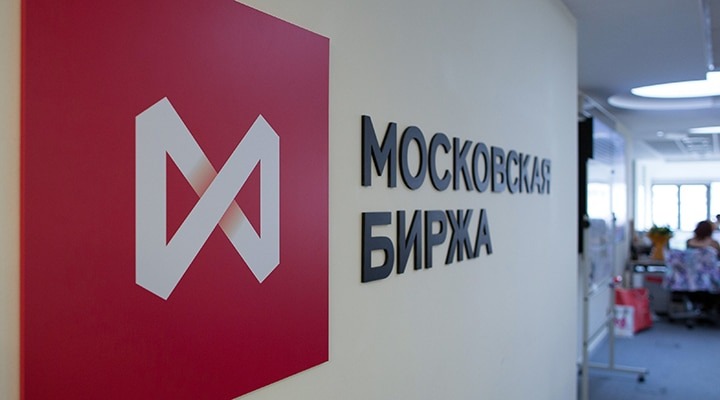Moscow Exchange (MOEX) published its annual results for 2022, reporting a 9.8 percent decline in its overall fees and commission income to RUB 37.5 billion. The exchange operator highlighted discontinued non-resident trading and declined RUB asset prices behind the drop.
The annual fees and commissions across markets in equities , bonds, money, and derivatives, decreased for the year.
Strong FX Income for MOEX
However, the trend was the opposite for forex markets offered by the Russian exchange. It witnessed a 35.1 percent increase in fees and commission income to about RUB 5.66 billion for the year. Additionally, the figure jumped 30.7 percent to RUB 1.5 billion in the last three months of 2022.
On the other hand, the FX market’s trading volume declined. There was a 16.8 percent dip in the annual trading demand with FX instruments, while the figure fell considerably further by 37.8 percent in the fourth quarter. In 2022, the exchange reported its FX market trading volume as RUB 267.8 trillion.
Only the trading demand in the money market on MOEX improved last year, though it failed to turn positive growth in fees and commission income.
Moreover, MOEX’s fee income from its information services declined by 5.7 percent annually to RUB 1.11 billion, and listing and other services dropped by 24.3 percent to RUB 578 million. On the contrary, income from the sale of software and tech services increased by 7.7 percent to RUB 1.22 billion and financial marketplace services by 50.4 percent to RUB 747.4 million.
A Profitable Year
The operating expense of the Russian exchange for the year increased by 16.2 percent, remaining lower than the guidance of a 20 percent growth. This figure remained unchanged for the final three months of the year.
The exchange closed the year with an EBITDA 28.4 percent higher to RUB 49.7 billion and a net profit of RUB 36.3 billion, which is an increase of 29.2 percent.
Last September, MOEX resumed early morning forex and evening stock trading, thus extending the trading hours. Meanwhile, the exchange ceased using the US dollar as collateral for underwriting transactions last year and indefinitely suspended trading in the Japanese yen on the currency markets, citing potential risks and difficulties in JPY settlements. Furthermore, it stopped accepting the Japanese yen as collateral for transactions on the offered markets.

















